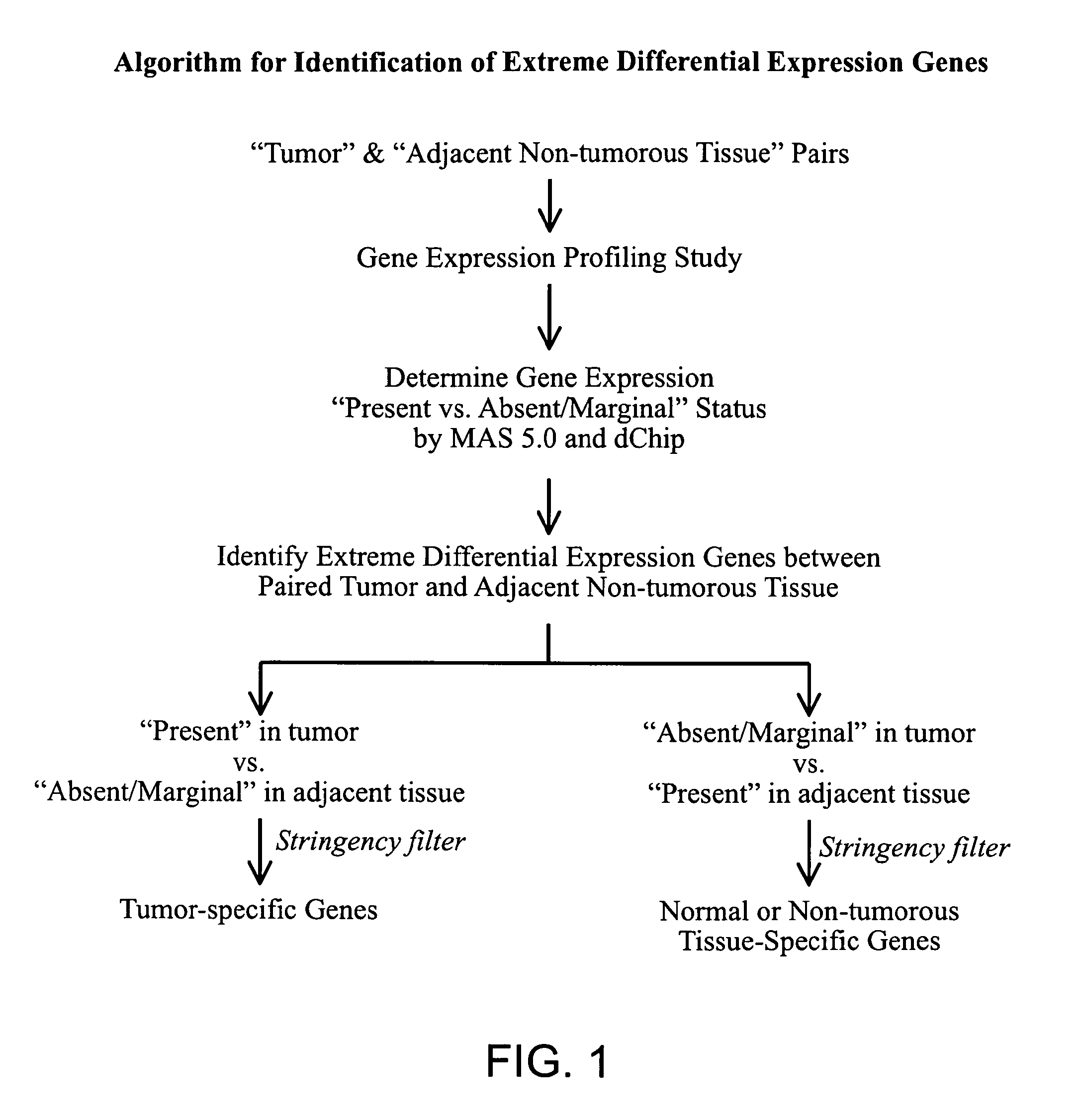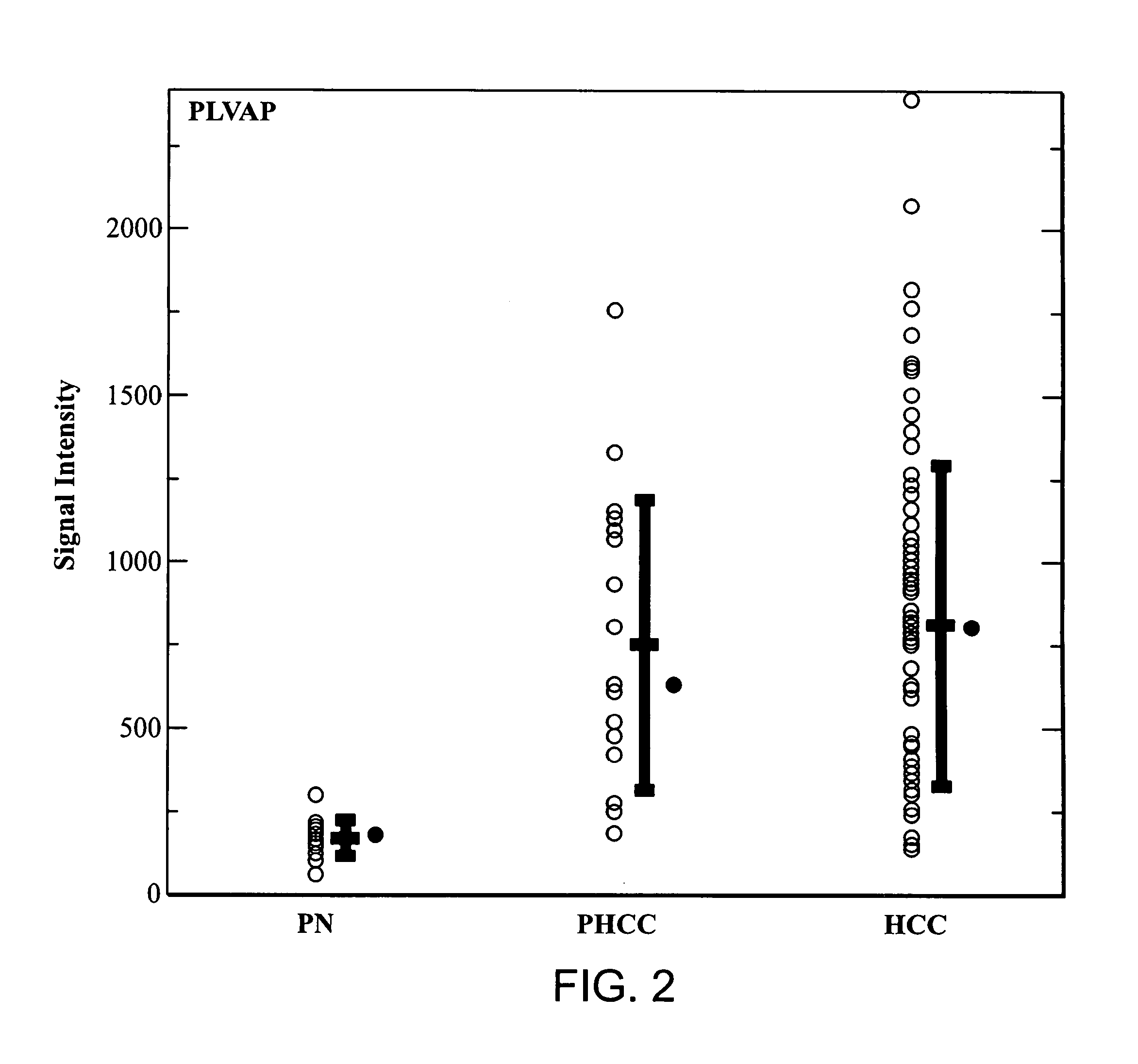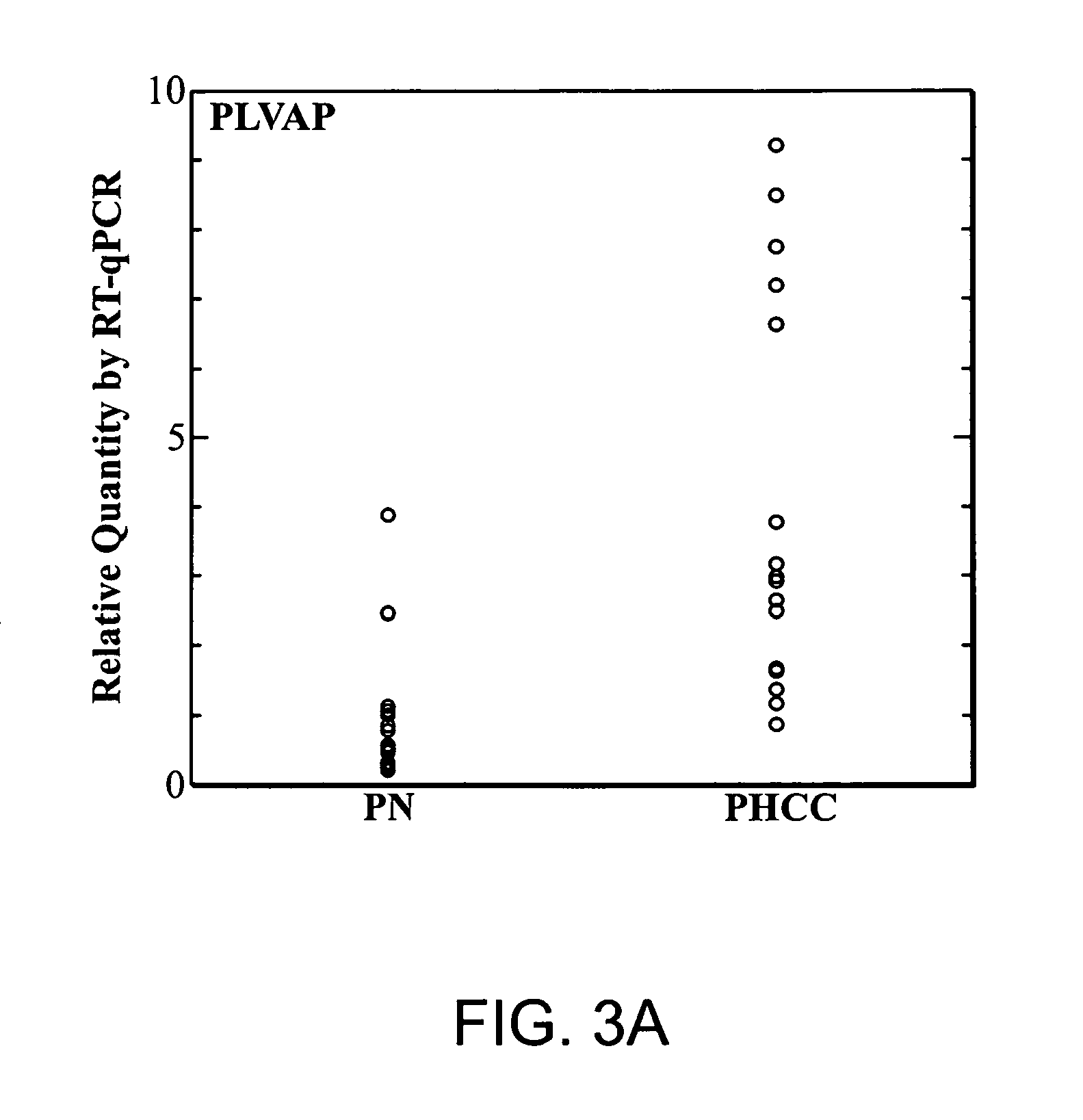Methods and Agents for the Diagnosis and Treatment of Hepatocellular Carcinoma
a hepatocellular carcinoma and agent technology, applied in the direction of his-tag polypeptides, drug compositions, peptides, etc., can solve the problems of difficult biopsy and/or fine needle aspiration, hcc is a major cause of mortality and morbidity, and significant economic burden, so as to inhibit the formation, growth and/or progression
- Summary
- Abstract
- Description
- Claims
- Application Information
AI Technical Summary
Benefits of technology
Problems solved by technology
Method used
Image
Examples
example 1
PLVAP Expression Is Elevated In HCC Liver Tissues Relative To Non-HCC Liver Tissues
Materials And Methods
[0175]Tissue Samples
[0176]Tissues of HCC and adjacent non-tumorous liver were collected from fresh specimens surgically removed from human patients for therapeutic purpose. These specimens were collected under direct supervision of attending pathologists. The collected tissues were immediately stored in liquid nitrogen at the Tumor Bank of the Koo Foundation Sun Yat-Sen Cancer Center (KF-SYSCC). Paired tissue samples from eighteen HCC patients were available for the study. The study was approved by the Institutional Review Board and written informed consent was obtained from all patients. The clinical characteristics of the eighteen HCC patients from this study are summarized in Table 1.
TABLE 1Clinical data for eighteen HCC patients from which paired HCC andadjacent non-tumorous liver tissue samples were obtainedCase NoSexAgeHBsAgHBsAbHCV IgGTNM StageAFP (ng / ml)Differentiation1M7...
example 2
PLVAP Is Specifically Expressed By HCC Vascular Endothelial Cells
Materials And Methods
[0188]Laser Capture Microdissection (LCM) of Formalin-Fixed Paraffin Embedded Tissues
[0189]LCM of formalin fixed tissue from paraffin blocks was carried out using Arcturus PixCell® IIe system, CapSure™ HS LCM caps, and Paradise™ reagent system from Arcturus Bioscience, Inc. (Mountain View, Calif.). Seven micrometer thick tissue sections were cut, deparaffinized, rehydrated, stained and dehydrated for LCM according to manufacturer's instructions. Target cells were captured onto CapSure™ HS LCM caps using 7.5 μm laser spot size at 50 mW power and 1.3 ms duration. Approximately, 5000 to 6000 cells were captured on each cap. However, only 1000 to 2000 hepatocellular carcinoma vascular endothelial cells were captured onto each cap due to paucity of cells.
[0190]RNA Extraction From LCM Tissue Sections For Quantitative RT-PCR
[0191]Cells captured onto the CapSure™ HS LCM caps as described above were proces...
example 3
Production And Characterization of Mouse Monoclonal Antibodies That Specifically Bind PLVAP
Materials and Methods
[0215]Immunization Procedures
[0216]Five six-week-old female Balb / cByJ mice were immunized initially with 20 μg of purified recombinant PLVAP protein dissolved in 0.125 mL phosphate buffered saline (PBS) and emulsified in an equal volume of complete Freund's adjuvant. The PLVAP-adjuvant mixture was injected in 0.05 mL volumes into each of four separate subcutaneous sites on the ventral side of the mice near the axillary and inguinal lymphatics, as well as a fifth subcutaneous site, which was located between the scapulae. All mice received a booster immunization of 20 μg of recombinant PLVAP protein injected intraperitoneally three times every two weeks. One week after the last booster immunization, test bleedings were taken to measure whether mice were producing sufficiently high titers of anti-PLVAP antibodies (>10,000×). A solid-phase enzyme-linked immunosorbent assay (EL...
PUM
| Property | Measurement | Unit |
|---|---|---|
| Cytotoxicity | aaaaa | aaaaa |
| Radioactivity | aaaaa | aaaaa |
| Chemotherapeutic properties | aaaaa | aaaaa |
Abstract
Description
Claims
Application Information
 Login to View More
Login to View More - R&D
- Intellectual Property
- Life Sciences
- Materials
- Tech Scout
- Unparalleled Data Quality
- Higher Quality Content
- 60% Fewer Hallucinations
Browse by: Latest US Patents, China's latest patents, Technical Efficacy Thesaurus, Application Domain, Technology Topic, Popular Technical Reports.
© 2025 PatSnap. All rights reserved.Legal|Privacy policy|Modern Slavery Act Transparency Statement|Sitemap|About US| Contact US: help@patsnap.com



